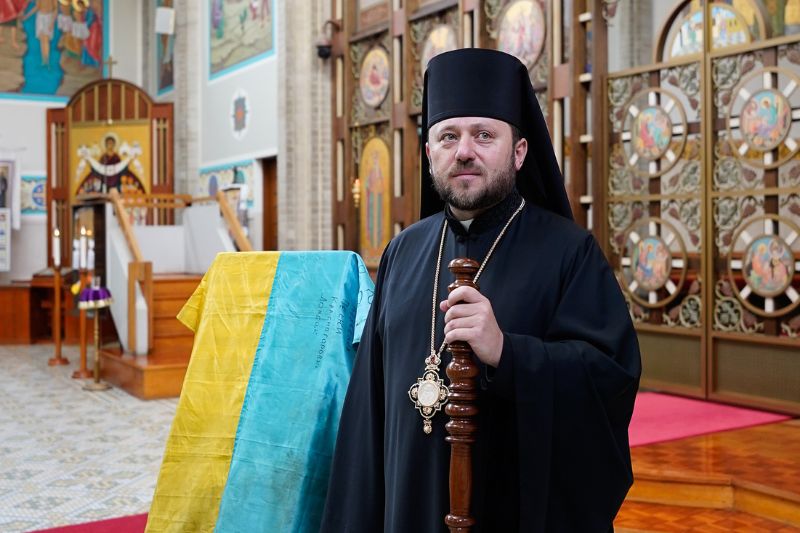The news last week that Pope Francis has appointed Mikola Bychok a Cardinal puzzled any Australians. Few would have heard of this Bishop of the Melbourne Ukrainian Catholic Church. Their puzzlement is perhaps as interesting as was his appointment. To understand, it may be helpful to recall the English spy and colonial stories and movies of a generation or so ago. Their protagonists constantly referred to ‘our man’ in Moscow, Havana, Lucknow or elsewhere. The phrase was telling. It suggested that the man – it was almost always a man – who belonged to Britain whether he was a safe pair of hands or a hopeless alcoholic. His task was to influence the policy of the nation where he was posted and to represent Britain’s interests. If he was highly esteemed and given a position of responsibility in the nation to which he was sent, that was a cause for national pride which might lead to a knighthood.

To refer to someone as ‘our man’ presupposes a united sense of a national identity and interest. In an institution or nation bitterly divided locally, ethically, religiously or ideologically, a representative abroad may be seen as ‘our’ woman or man only by those on the same side. Such more recent spy novels as those by John le Carré feed off these ambiguities.
In the Catholic Church, these considerations illuminate the popular response to the appointment of Cardinals. The Pope appoints them as advisors who can help him in his governance of the universal Church. Catholics generally feel honoured when the Pope appoints a Cardinal from their own nation, and even more so when the new Cardinal comes from their own city. He can validate and represent their own experience in deliberations about matters that concern the universal Church. He can be our man in Rome. When Catholics are divided by their theology, ethnic origin or political stance, they will be happy when a Cardinal who shares their views or origin is appointed, and perhaps dismayed when one with a strongly opposed vision of the Church is named. If the Pope’s selection of Cardinals embodies his vision of the universal Church and of the priorities that arise out of Christian faith, the local response to the naming of a Cardinal reveals how far that vision and those priorities are shared by the Church from which he comes. For that reason, the naming and reception of any Cardinal are a time of judgment.
The popular response of the media and among Catholics to the appointment of Mikola Bychok as Cardinal was probably more one of surprise. They had never heard his name nor known that he is an Australian Bishop. They would certainly not have thought of him as ‘our man’ in Rome. For the record, he is Bishop of the Ukrainian Catholic Church in Melbourne, was born, educated and joined the Redemptorist Religious Congregation in Ukraine, and had served as a missionary priest in Siberia, before his appointment as Bishop in Melbourne four years ago. He has actively supported his fellow Catholics in the Ukraine, and his Ukrainian origin clearly is one of the factors in his appointment as Cardinal. At the age of 44, too, he is almost ten years younger than the youngest of the active Catholic Bishops and born almost a generation before most of them.
His appointment invites us as Australians to name what marks and excludes a person, in John Howard’s unforgettable words, from being seen as ‘one of us’. Immigrants for whom English is not their native language and non-citizens are seen by many as not fully belonging to us. So also are members of religious groups who gather to express their faith in their native language and rituals. Many, too, of those who take a strong position in the religious and cultural disputes that engage the public conversation are seen as their opponents as un-Australian. So it seems in practice are Indigenous Australians. If any of the people in these groups were chosen to represent Australia abroad their appointment would be controversial. They are outsiders, and as such their reception invites us to reflect on how we define who sits inside and who is outside in our society.
Pope Francis’ appointments as Cardinals have constantly challenged Catholics’ sense of relative importance and status of people both in the world and in the Catholic Church. Among the most recently named Cardinals, none are Bishops in European or United States cities. He has preferred Bishops of small Catholic minority Churches, such as Mongolia, and from outside major cities from which Cardinals were previously drawn, such a Philadelphia or Sydney. His appointments challenge the hierarchies of value such as those based on size, wealth, power and status within the Catholic Church and also implicitly the values of the wider society. They embody his vision of a Church in which energy flows upwards through local congregations focused on relationships to those at their edges, to dioceses, national churches and to Rome, and then backwards to the base.
In such a vision of Church, the appointment of Bishop Bychok as representative both of Ukraine and of Australia is natural and appropriate. It invites Catholics in both nations to look beyond their own religious and political boundaries in defining their Church and their society. It also invites us as Australians to see our boundaries, internal as well as external, as gates through which people can be welcomed and not as razor wire fences designed to keep people out. And of course, it also should spark our curiosity both about Bishop Bychok’s story and that of the Ukrainian community in Australia.
Andrew Hamilton is consulting editor of Eureka Street, and writer at Jesuit Social Services.
Main image: Mikola Bychok. (Melbourne Catholic)